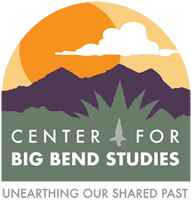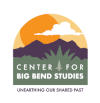Human Prehistory in the Trans-Pecos
May 29 to July 3, 2012
This is a fun and exciting opportunity to study archaeology, hands-on, in beautiful West Texas, as well as a chance to contribute to our growing understanding of prehistory in the Trans-Pecos region.
This six credit hour course teaches archaeological field techniques to undergraduate and graduate students. At Sul Ross, three hours of the class credit can be applied to Social Science curriculum requirements, and the remaining three hours apply to elective credit. However, students from other institutions may receive credit consistent with their local program guidelines (consult your department). You will be working side-by-side with experienced, professional archaeologists.
The course is designed to assist students in learning and developing archaeological field techniques, such as mapping features, profiling exposures, finding and recording sites, and methods of excavation. Fieldwork is augmented by an intensive program of guest lectures, field trips, discussions, and laboratory work. Expect warm-to-hot temperatures—shade set-ups will be used during excavations.
This year’s field school will incorporate investigations at several noteworthy locations in the Trans-Pecos region of West Texas. This is a unique opportunity for students to engage in archaeological studies in a variety of settings and to gain an appreciation for the diversity of prehistoric lifeways and environments in the Trans-Pecos. The possibilities for study locations include the Nature Conservancy’s Independence Creek Preserve in Terrell County, additional renowned and important sites in the Lower Pecos region, sites in the Big Bend region of the Eastern Trans-Pecos, and a range of sites on vast and remote private ranches—all extremely rare opportunities.
Generally, the field school will consist of five 5-day sessions (Monday to Friday) with weekend breaks. However, considerable flexibility may be exercised to accommodate weather and field trip logistics. In many instances, bunkhouse-type accommodations will be available in ranch facilities. However, when conditions allow, some brief tent/car camping may be needed to facilitate work in remote locations. All food is provided, with breakfast and dinner prepared by a camp cook. Depending on the final itinerary, Sul Ross can provide vehicle support for field excursions, but students may want or need to provide transportation to base camps. In addition to lectures and presentations, after-class activities will vary according to the itinerary. Possibilities include swimming (at several locations), fishing, birding, exploration, and photography.


